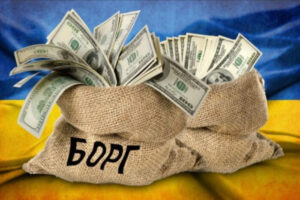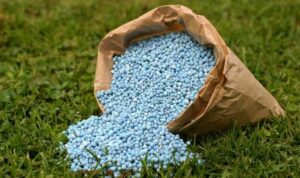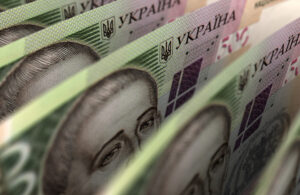
Ukraine’s total public debt in 2024 rose to a new all-time high: by $22.74 billion, or 14.3%, to $166.06 billion in dollar terms, and by UAH 1 trillion 461.3 billion, or 26.5%, to UAH 6 trillion 980.9 billion in hryvnia terms, according to the website of the Ministry of Finance.
According to the data, the direct public debt increased by 16.5% in dollars to $159.20 billion, or UAH 6 trillion 692.4 billion, and accounted for 95.9% of the total public and publicly guaranteed debt.
In 2024, Ukraine’s total external public debt increased by 18.1%, or by $18.38 billion, to $114.88 billion, while the total internal public debt increased by 16.7%, or by UAH 276.0 billion, to UAH 1 trillion 863.1 billion.
As a result, the share of total external public debt increased from 70.0% to 72.3% over the year.
According to the Ministry of Finance, the share of liabilities in euros at the end of 2024 increased to 33.01%, in US dollars to 26.81%, in SDRs to 11.39%, in Canadian dollars to 2.83%, in British pounds to 0.11%, while in hryvnia it decreased to 25.33% and in yen to 0.51%.
The agency also clarified that 65.01% of the state debt has a fixed interest rate, while 11.39% is tied to the IMF rate, 12.66% to SOFR, 3.80% to EURIBOR, 0.51% to TORF and 0.10% to SONIA.
The rate for another 2.08% of government debt is tied to the consumer price index, and 4.17% to the NBU discount rate. These are government bonds from the NBU’s portfolio. The newest of these were the securities linked to the key policy rate, which the NBU bought as part of the issue financing of the 2022 budget.
Finally, 0.27% of the state debt has a rate linked to the Ukrainian index of rates on retail deposits, which is used in portfolio guarantee programs.
The Ministry of Finance previously noted that Russia’s full-scale invasion of Ukraine in 2022 led to a sharp increase in the ratio of public debt to GDP – from 43.3% at the end of 2021 to 79.4% at the end of 2023.
As reported, Ukraine’s public and publicly guaranteed debt increased by $13.4 billion in 2022 and by $33.9 billion in 2023.
The IMF, as part of the sixth review of the EFF Extended Fund Facility program with Ukraine last December, improved its forecast for public debt growth due to higher GDP growth and lower deficits: to 92.2% of GDP by the end of 2024 and to 104.3% by the end of 2025, while in October it estimated it at 95.6% of GDP and 106.6% of GDP, respectively.
Earlier, the Experts Club think tank and Maxim Urakin released a video analysis on the state of debt in the world, see more details on the YouTube channel: https://youtu.be/gq7twYrWuqE

Germany’s GDP in the fourth quarter of 2024 decreased by 0.2% compared to the previous three months, according to a report by the German Federal Statistical Office (Destatis), which presented preliminary data. The consensus forecast of experts, cited by Trading Economics, predicted a 0.1% decline in GDP.
Consumer and government spending increased last quarter, but exports declined significantly, Destatis said.
In annual terms, the country’s GDP also decreased by 0.2% in October-December, adjusted for the number of working days. Analysts on average did not expect any changes. In the third quarter, Germany’s economy grew by 0.1% quarter-on-quarter and shrank by 0.3% year-on-year, as previously reported.
For the whole of 2024, it decreased by 0.2% after a 0.3% decline a year earlier. Final data on the dynamics of German GDP for the fourth quarter will be published on February 25.

PJSC “HC ‘Kyivmiskbud’ has officially started the process of preparation for additional capitalization, there are also expectations of financial assistance from the government and participation in additional capitalization from minority shareholders, said Vladislav Andronov, Deputy Chairman of the KSCA on the implementation of self-governing powers, Chairman of the Commission for solving problematic issues related to the activities of ‘Kyivmiskbud’, at a meeting with investors on Wednesday.
He reminded that a meeting of the company’s shareholders is scheduled for February 14, at which it is planned to consider the issue of bringing the company’s charter and internal regulatory documents in compliance with the current legislation, as well as creating the necessary conditions for an additional issue of shares. According to Andronov, after making amendments to the charter and regulations on the supervisory board, the issue of the additional issue itself may be decided at the next meeting.
“There is a textual norm in the city budget that in case the decision is taken by the meeting of shareholders of Kyivmiskbud on additional capitalization, such funds, about UAH 2.6 billion, are provided for. Regarding minority shareholders (they own 20% of KGS), the city is interested in their participation in additional capitalization”, – Andronov said.
As reported, the Kyiv City Council supported the decision (No. 155/9964) to increase the authorized capital of PJSC “HC ‘Kyivmiskbud’ to stabilize the financial position of the company through an additional issue and purchase of shares up to UAH 2.56 billion. The Kyiv City Council also supported the decision (No. 155/9963) to request the Cabinet of Ministers to consider compensating HC Kyivmiskbud for the total planned losses of UAH 2.28 billion related to the completion of Ukrbud’s facilities, in particular by means of soft loans and other forms of assistance.
As for compensation for “Ukrbud” facilities, the city is actively corresponding with the Government, but most of the responses from ministries and departments are formally negative. In particular, the director of the Department of Intergovernmental Relations and Local Budgets Policy of the Ministry of Finance, Oleksandr Koren, replied that “the issue of realization of the above-mentioned compensation at the expense of the state budget can be considered only within the limits of its financial capabilities, which are extremely limited under the conditions of acute budget deficit caused by the martial law conditions”.
Thus, the main hope of investors to launch Kyivmiskbudget projects is on additional issue from the city budget resources. According to Andronov, after passing all the procedures, the Kyiv City Council plans to allocate budgeted funds to the company during 2025. Regarding the stage of restoration of projects and terms of their completion – this will be decided directly in “Kyivmiskbud”, taking into account the financial capacity and construction readiness of projects.
As reported, in March 2024 the Kyiv City State Administration established a temporary commission to solve problematic issues related to the activities of PJSC “HC ‘Kyivmiskbud’.
According to the results of the audit of “Kyivmiskbud”, conducted in 2023 by the state enterprise “Baker Tilly Ukraine Consulting”, LLC “Audit firm NHD-AUDIT” and LLC “Ernst & Young”, it was found that there were no signs of actions to bring the company to bankruptcy, concealment of the facts of financial insolvency or mass transactions by related parties. At the same time, the auditors found that the activity of Kyivmiskbud was disturbed due to external factors: COVID-19, full-scale war, the factor of “Ukrbud”.
HC “Kyivmiskbud” was established on the basis of the property of the state municipal construction corporation “Kyivmiskbud” in 1994 by combining in its authorized capital controlling stakes of 28 enterprises and other assets. The HC includes 40 JSCs, in which the company holds shares, six subsidiaries and 51 enterprises on the rights of associate member.
The main shareholder of PJSC HC Kyivmiskbud, according to the National Commission on Securities and Stock Market (NCSSM), is Kyiv City Council (80%).

The plants of nitrogen holding Ostchem produced 1.8 million tons of mineral fertilizers in 2024, down 13% from 2023, according to a press release from Group DF International’s corporate communications department.
According to the report, Cherkasy-based Azot maintained its production level at 1.4 million tons in 2024, while Rivne Azot reduced its output by 22% and produced 407 thousand tons, down from 528 thousand tons a year earlier.
According to Group DF International, the key products produced by Ostchem’s plants were ammonium nitrate – 760.2 thousand tons (41.9% of the total), UAN – 506.7 thousand tons (27.9%), urea – 401.9 thousand tons (22.2%), and ammonia – 75 thousand tons (4.1%).
The reasons for the decline in production were low grain prices on global markets, power outages, the ongoing war and imports of cheap, low-quality fertilizers.
“Ukrainian farmers are going through difficult times, and the margins of their businesses have fallen significantly. This affects the domestic demand for mineral fertilizers – sometimes priority was given to cheaper fertilizers of dubious quality, which were imported en masse last year. We play the long game, and even in the most difficult times we ensure high international quality of our products and 100% fulfillment of our obligations. Even during the periods of forced shutdowns of Rivne Azot due to power outages, these business values remained unchanged, as Ukrainian farmers could see,” said Sergiy Pavlyuchuk, Chief Operating Officer of Ostchem’s nitrogen business.
The holding reported that in 2024, the average annual capacity utilization of Ostchem did not exceed 70%. Uncontrolled imports did not allow Ukrainian enterprises to operate at full capacity.
“Unfortunately, we were forced to cut staff and optimize costs. According to my estimates, the decline in the chemical industry was about 10%, and this is the result of growing imports and ineffective industrial policy,” Pavliuchuk said.
He added that in 2025, Ostchem has adapted to the military business environment and will continue to focus on developing new industrial sites, energy efficiency, ensuring stable operations and improving product quality in the new environment.
“The key objective for 2025 is to ensure production sustainability in the current unstable energy supply environment, reduce production risks, and replace imports with better quality. Our long-term strategic priority remains the same: import substitution and, consequently, an increase in market share. We will continue to invest in the production of the most popular fertilizers and expand our product line. First of all, we are talking about investment projects related to the launch of urea and industrial gases production,” summarized Pavliuchuk.
Ostchem is a nitrogen holding of Dmitry Firtash’s Group DF that unites the largest mineral fertilizer producers in Ukraine. Since 2011, it has included Rivne Azot and Cherkasy Azot, as well as Sievierodonetsk Azot and Stirol, which are out of operation and located in the occupied territories.
Cherkasy Azot PrJSC (Cherkasy, Ukraine) is one of the largest Ukrainian chemical enterprises. The design production capacity is 962.7 thousand tons per year of ammonia, 970 thousand tons per year of ammonium nitrate, 891.6 thousand tons of urea, and 1 million tons per year of UAN.
Rivne Azot is one of the largest Ukrainian chemical companies in Western Ukraine. On April 12, 2024, Group DF and South Korean Hyundai Engineering signed an agreement to build a chemical hub in Rivne. The project envisages the construction of green ammonia and hydrogen plants based on renewable energy sources; new enterprises and production sites for nitrogen fertilizers and chemical derivatives.

In October-December 2024, state-owned Ukreximbank, Oschabank, and Ukrgasbank (all based in Kyiv) issued loans from two to five years worth about UAH 2.04 billion in the equivalent to five city councils at floating rates, according to the Ministry of Finance.
According to this information, Ukreximbank issued the most loans during this period: two in foreign currency and three in hryvnia.
In particular, in late October and early November last year, the state-owned bank financed the Brovary City Council for EUR 2.2 million at a floating rate of EURIBOR 6M + 3.58% and the Stryi City Council (Lviv region) for EUR 850 thousand at a rate of EURIBOR 6M + 3.63%. In both cases, it is specified that the interest rate, according to the terms of the agreement, cannot exceed 8%. Both loans were issued for five years with a grace period during the first year.
In December, Exim also issued three loans in the national currency: UAH 200 million at UIRD 3M +3.03% to Zaporizhzhia City Council, UAH 125 million to Mukachevo City Council at a slightly higher rate of UIRD 3M +4.73%, and UAH 16.96 million to Sheptytska City Council (Lviv region) at UIRD 3M +4.41%. Mukachevo City Council received a loan for a year, while Sheptytsky and Zaporizhzhia City Councils received loans for five years, with a grace period of up to a year for the former and up to a year and a half for the latter.
The agreements also state that at the time of issuance, these floating rates were 16.3% for Zaporizhzhia, 17.45% for Sheptytska, and 18% for Mukachevo, and should not exceed 21%, 23%, and 25% per annum, respectively.
In turn, at the end of December 2024, Oschadbank issued UAH 840 million to the Lviv City Council under UIRD 3M +3.0%, with the rate being reviewed quarterly. The loan was issued for five years, with a grace period of two years.
This state-owned bank also provided two loans in November: UAH 500 million to the Dnipro City Council at a variable rate with quarterly review of UIRD 3M +2.97%, and UAH 120.8 million to the Kamianske City Council (Dnipropetrovska oblast) at a fixed rate of 13.5% p.a. for the first year and UIRD 3M +3.0% from the second year with quarterly review. Both loans were issued for a five-year term with a 12-month grace period.
Under the terms of the three loan agreements, the interest rate cannot exceed 22% in all cases.
At the end of November 2024, the state-owned Ukrgasbank financed the Dnipro City Council for UAH 100 million: the first year the fixed rate is 13.5% per annum, and from the second year onwards, the floating rate UIRD 12M +3%, but not more than 23%. The loan was issued for a period of 5 years, of which one year is a grace period.

Dnipro Metallurgical Plant (DMZ), a part of DCH Steel of businessman Aleksandr Yaroslavsky’s DCH Group, paid UAH 498.9 million in taxes in 2024, down 24.1% from UAH 657 million in 2023.
According to DCH Steel’s corporate newspaper on Thursday, in 2024, DMZ paid UAH 196.7 million in value added tax, UAH 92.9 million in land rent, UAH 88.1 million in unified social tax, and UAH 77.3 million in personal income tax.
In addition, Sukha Balka mine (Kryvyi Rih, Dnipropetrovska oblast), which is also part of Aleksandr Yaroslavskyi’s DCH group, paid UAH 404.5 million in taxes. The most significant payments in the mine’s payment structure are rent for subsoil use – UAH 162.1 million, personal income tax – UAH 117.3 million, and unified social tax – UAH 76.1 million.
In 2024, DMZ and Sukha Balka mine paid a total of UAH 903.4 million in taxes and fees to the budgets of all levels.
As reported, in the first half of 2024, DMZ paid UAH 292 million in taxes, including UAH 129 million in VAT, UAH 28 million in income tax, UAH 43 million in unified social tax, UAH 38 million in personal income tax and UAH 54 million in other taxes.
The total amount of taxes paid by Sukha Balka Mine in this period amounted to UAH 167 million. In particular, it includes rent for the use of subsoil for the extraction of minerals (iron ore) – UAH 80 million, unified social tax – UAH 37 million, personal income tax – UAH 34 million, and other taxes – UAH 16 million.
In 2023, DMZ paid more than UAH 657 million in taxes, up 64% compared to 2022. In the structure of payments to the budgets of all levels, the largest amount of value added tax was UAH 277.5 million.
Income tax amounted to UAH 122 million, and unified social tax, rent and other contributions amounted to UAH 257 million.
DMZ specializes in the production of steel, cast iron, rolled products and products made from them. On March 1, 2018, DCH Group signed an agreement to buy DMZ from Evraz.
Sukha Balka mine is one of the leading mining companies in Ukraine. It produces iron ore by underground mining. It includes Yubileynaya and Frunze mines. DCH Group acquired the mine from Evraz Group in May 2017.